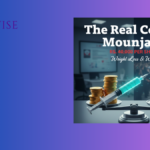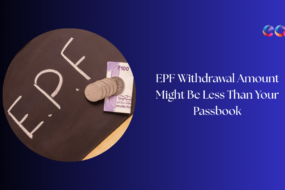
Credit cards have become an essential part of modern life. They provide convenience and flexibility when it comes to making purchases or paying bills. However, with so many credit cards available on the market, it can be difficult to know which one is right for you. That’s why we’ve put together the ultimate guide to March 2023’s best credit cards. In this guide, we’ll cover everything you need to know about credit cards, from rewards and fees to interest rates and credit score requirements. So, let’s dive in and find the perfect card for you.
Table of Contents
What is a Credit Card?
A credit card is a payment card that allows you to borrow money from a bank or financial institution to make purchases or pay bills. When you use a credit card, you are essentially borrowing money that you will need to pay back, usually with interest. Credit cards offer a convenient way to make purchases and can be used for everything from groceries to travel expenses.
Types of Credit Cards
- There are several types of credit cards available on the market, each with its own set of features and benefits. Some of the most common types of credit cards include:
- Rewards credit cards: These cards offer rewards such as cashback, points, or miles for making purchases with the card.
- Balance transfer credit cards: These cards allow you to transfer your existing credit card balance to a new card with a lower interest rate.
- Secured credit cards: These cards require a security deposit and are designed for individuals with limited or poor credit history.
- Low-interest credit cards: These cards offer a lower interest rate than other credit cards, making them a good option for individuals who tend to carry a balance.
Rewards Credit Cards
Rewards credit cards are a popular option for many consumers, as they offer rewards for making purchases with the card. These rewards can take the form of cashback, points, or miles, and can be redeemed for statement credits, gift cards, travel, or merchandise. Rewards credit cards can be a great way to earn extra benefits for purchases you would be making anyway.
Fees and Charges
Credit cards often come with fees and charges that can add up quickly. Some common fees and charges include:
Annual fees: Some credit cards charge an annual fee for the privilege of using the card.
Late fees: If you miss a payment or pay late, you may be charged a late fee.
Balance transfer fees: If you transfer a balance from one card to another, you may be charged a balance transfer fee.
Cash advance fees: If you use your credit card to get cash, you may be charged a cash advance fee.
Interest Rates:
Credit cards typically come with an interest rate, which is the amount you will be charged if you carry a balance on your card. Interest rates can vary widely, depending on the card and your credit history. It’s important to understand your interest rate and to try to pay your balance in full each month to avoid paying interest.
Credit Score Requirements:
Your credit score is a measure of your creditworthiness and is an important factor when it comes to getting approved for a credit card. The higher your credit score, the more likely you are to be approved for a credit card with favorable terms and conditions. If your credit score is low, you may need to look for a secured credit card or take steps to improve your credit score before applying for a credit card.
Choosing the Right Credit Card:
Choosing the right credit card can be overwhelming, but it doesn’t have to be. With a little bit of research and careful consideration of your financial situation and goals, you can find the perfect card for you. In this article, we will guide you through the process of choosing the right credit card by breaking down the key factors you need to consider. Whether you’re looking for a card with low interest rates, great rewards, or other perks, we’ve got you covered. Let’s dive in!
Best Rewards Credit Cards:
- Chase Sapphire Preferred: This card offers 100,000 bonus points after you spend $4,000 on purchases in the first 3 months from account opening. You can earn 2X points on dining and travel, and 1X points on all other purchases.
- American Express Gold Card: This card offers 60,000 Membership Rewards points after you spend $4,000 on purchases in the first 6 months from account opening. You can earn 4X points at restaurants worldwide, 4X points at U.S. supermarkets (on up to $25,000 per year in purchases, then 1X), 3X points on flights booked directly with airlines or on amextravel.com, and 1X points on all other purchases.
- Citi Double Cash: This card offers 2% cash back on all purchases – 1% when you buy and 1% when you pay your bill.
Best Travel Credit Cards:
- Capital One Venture Rewards: This card offers 100,000 bonus miles when you spend $20,000 on purchases in the first 12 months from account opening, or still earn 50,000 miles if you spend $3,000 on purchases in the first 3 months. You can earn 2X miles on every purchase, every day.
- Delta SkyMiles Gold: This card offers 70,000 bonus miles after you spend $2,000 in purchases on your new Card in your first 3 months. You can earn 2X miles on Delta purchases, at restaurants worldwide, including takeout and delivery, and at U.S. supermarkets; 1X miles on all other eligible purchases.
- Chase Sapphire Reserve: This card offers 60,000 bonus points after you spend $4,000 on purchases in the first 3 months from account opening. You can earn 3X points on travel immediately after earning your $300 travel credit. 3X points on dining at restaurants, including eligible delivery services, takeout and dining out & 1 point per $1 spent on all other purchases.
Best Low Interest Credit Cards:
- Discover it Cash Back: This card offers a 0% introductory APR for 14 months on purchases and balance transfers, followed by a variable APR of 11.99% – 22.99%. You can earn 5% cash back on everyday purchases at different places each quarter like Amazon.com, grocery stores, restaurants, gas stations and when you pay using PayPal, up to the quarterly maximum when you activate. Plus, earn unlimited 1% cash back on all other purchases.
- Citi Simplicity: This card offers a 0% introductory APR for 18 months on purchases and balance transfers, followed by a variable APR of 14.74% – 24.74%. This card has no late fees, no penalty rates, and no annual fee.
- Wells Fargo Platinum Card: This card offers a 0% introductory APR for 18 months on purchases and balance transfers, followed by a variable APR of 16.49% – 24.49%. This card also offers cell phone protection when you pay your monthly cell phone bill with your card.
Remember to compare the benefits and rewards of each card to determine which one is the best fit for your spending habits and financial goals.
Conclusion:
Choosing the right credit card for your needs can be a daunting task, but by considering factors such as rewards, fees, interest rates, and your credit score, you can narrow down your options. In March 2023, some of the best credit cards available include the Chase Sapphire Preferred, Capital One Venture Rewards, and Discover it Cash Back, among others. Be sure to carefully review the terms and conditions of each card you’re considering and make an informed decision based on your personal financial situation.
FAQs:
Q: What is a Credit Card?
A: A credit card is a payment card that allows you to borrow money from a bank or financial institution to make purchases or pay bills. You can use a credit card to make purchases at stores, online, or over the phone. You are required to pay back the borrowed amount, plus interest if you carry a balance.
Q: How do I apply for a credit card?
You can apply for a credit card online, over the phone, or in person at a bank or financial institution. To apply, you will need to provide personal information such as your name, address, Social Security number, and employment information. You will also need to provide information about your income and expenses.
Q: What is a credit limit?
A: A credit limit is the maximum amount of money you can borrow on your credit card. Your credit limit is determined by the bank or financial institution based on factors such as your credit score, income, and credit history.
Q: What is an APR?
APR stands for annual percentage rate. It is the interest rate charged on the unpaid balance on your credit card. If you carry a balance on your credit card, you will be charged interest on that balance.
Q: What are rewards credit cards?
Rewards credit cards are credit cards that offer rewards such as cash back, points, or miles for making purchases with the card. You can redeem these rewards for things like statement credits, gift cards, travel, or merchandise.
Q: How do I avoid paying interest on my credit card?
You can avoid paying interest on your credit card by paying your balance in full each month before the due date. If you can’t pay your balance in full, try to pay as much as you can to reduce the amount of interest you will be charged.
Q: What should I do if I can’t make my credit card payments?
A: If you are struggling to make your credit card payments, contact your bank or financial institution as soon as possible. They may be able to work with you to set up a payment plan or offer other solutions. Ignoring your credit card payments can lead to late fees, penalty interest rates, and damage to your credit score.












